The Variants of acne:
Comedones
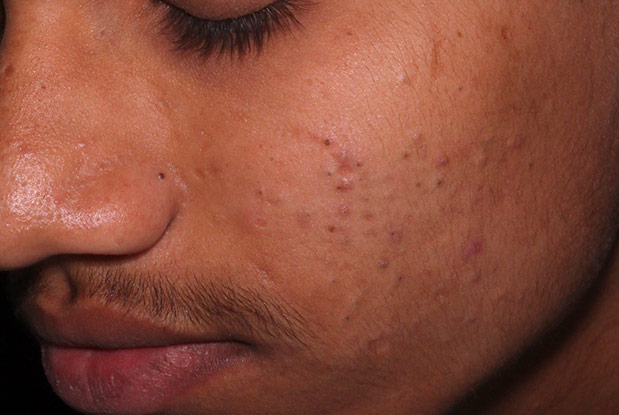
They are basic lesions of acne, the comedo is a hair follicle that has become clogged with oil and dead skin cells. Comedones (the plural of comedo) can develop into bumps called whiteheads (closed comedones) and blackheads (open comedones). Products that may trigger the formation of comedones are called “comedogenic.”
Papules
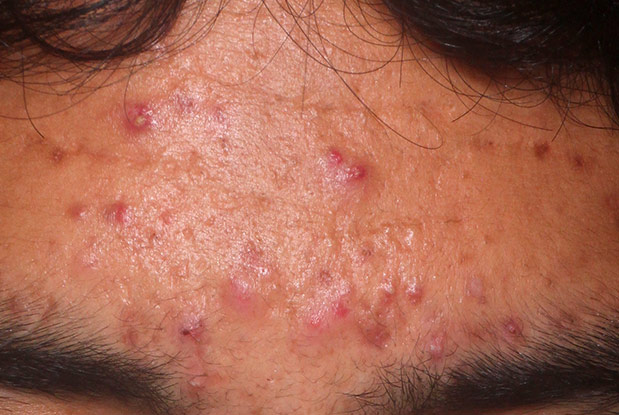
Papules are comedones that become swollen, forming small solid red or pink bumps on the skin.
Pustules

Papules are comedones that become swollen, forming small solid red or pink bumps on the skin.
Nodules

Nodules are large, inflamed bumps that feel firm and deep in the skin, when touched.
Cysts

Cysts are large, pus-filled lesions that look similar to boils. Nodules and cysts may be painful. People who develop nodules and cysts are usually considered to have a more severe form of acne and requires expert treatment.
Acne conglobata
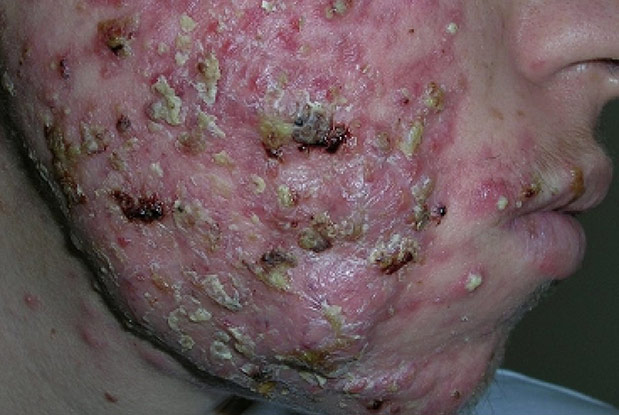
Acne conglobata is one of the most severe forms of acne. It involves many inflamed nodules that are connected under the skin to other nodules and often leaves scars. This is more common in men and is sometimes caused by taking steroids or testosterone. Timely management by a dermatologist is crucial in preventing complications.
Acne Fulminans
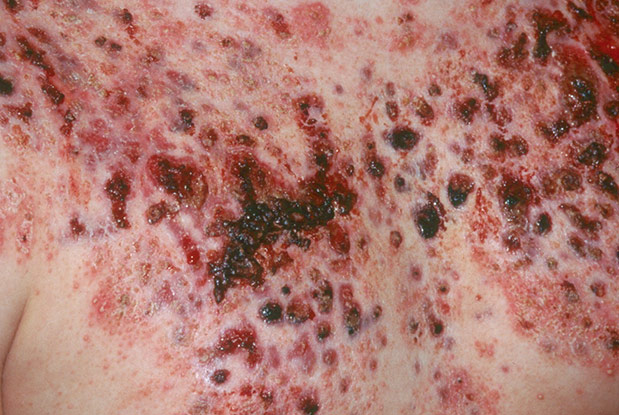
Acne fulminans is a rare and very severe form of acne conglobata associated with systemic symptoms (like fever, bone pain etc).
Acne Mechanica

Acne conglobata is one of the most severe forms of acne. It involves many inflamed nodules that are connected under the skin to other nodules and often leaves scars. This is more common in men and is sometimes caused by taking steroids or testosterone. Timely management by a dermatologist is crucial in preventing complications.
Acne Excorie
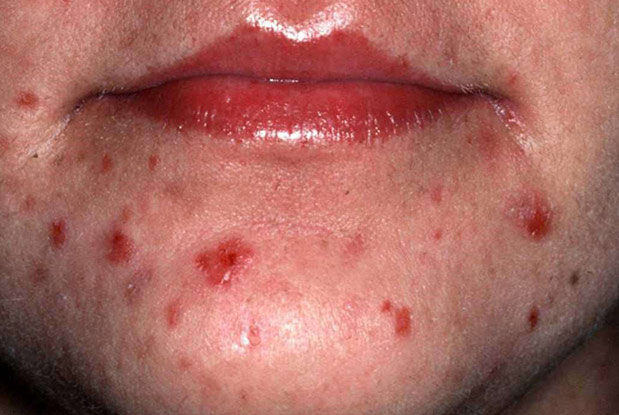
It may also be spelled the French way, acné excoriée, used to describe scratched or picked pimples. Most people squeeze or pick some of their acne in an attempt to be rid of them. This makes the acne look worse as it may cause pigmentaion and scarring.
Acne Cosmetica

This is the type of acne developing in the areas of skin exposed to follicle-occluding cosmetics for a very long time, it predominantly has closed comedones.
Pomade Acne

It means the type of acne which favors forehead and temples and caused by the use of hair products like hair oils.
Mallorca Acne
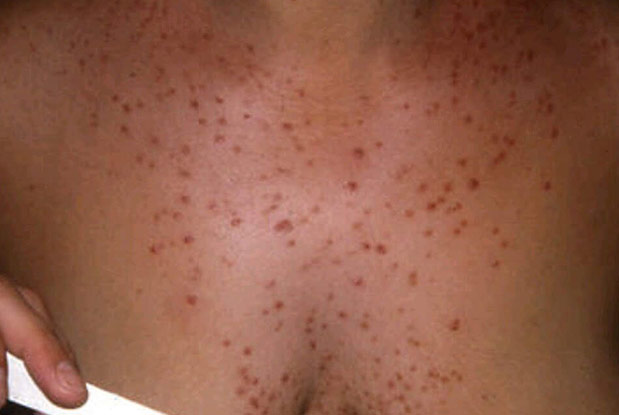
Also called acne estivalis (“estivalis” means summer); this is a rare form of acne that occurs in the summer or following a vacation in the sun.
Drug-Induced Acne

Acne or acne-like lesions can be seen as a side effect of a number of medications. An eruption predominantly composed of singular type of acne lesion is often observed in drug-induced acne, in contrast to a mixed variety of lesions seen in acne vulgaris.
Acne Vulgaris
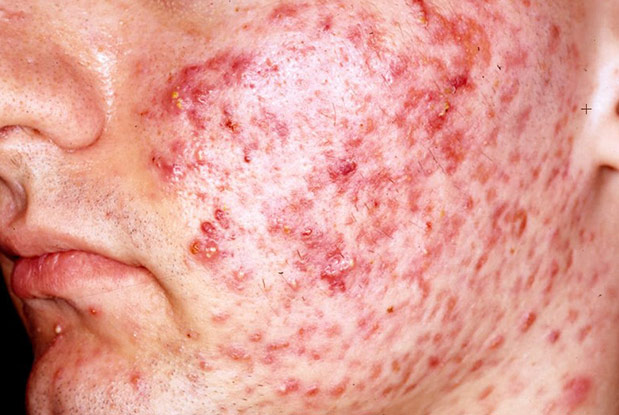
Vulgaris is the medical term for “common”. It is given this name to distinguish it from less common variants of acne.
Neonatal Acne
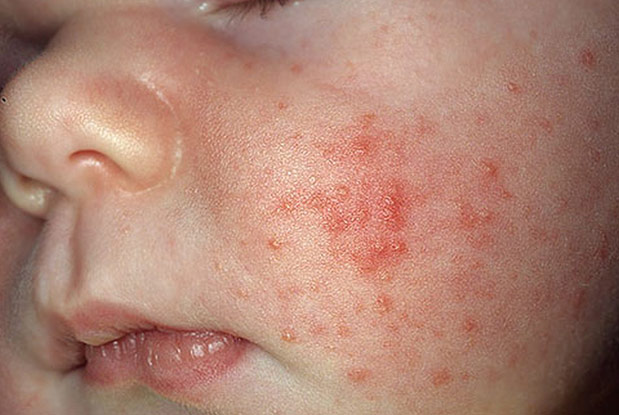
Neonatal acne occurs in more than 20% of healthy newborns. Lesions usually appear at about 2 weeks of age and generally resolve within the first 3 months of life. Small papules and pustules (but not comedones) arise on the cheeks, nose, forehead, and may be over chin, neck and upper trunk.
Infantile Acne
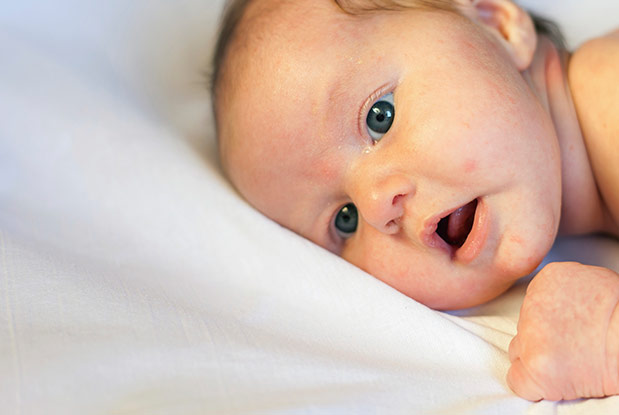
If acne presents at 3–12 months of age it is called as infantile. In contrast to neonatal acne, comedo formation is prominent and scarring can develop.
Post-Adolescent Acne

Inflammatory acne persisting beyond 25 years of age is most common in women, tends to flare during the week prior to menstruation, and typically features tender, deep-seated papulonodules on the lower third of the face, jawline and neck.
Acne in Pregnancy

During pregnancy, the severity of acne can improve or get worse. It is common, that acne may get worse in early pregnancy and improve later as pregnancy progresses. However, a few women have flares of acne throughout pregnancy.
Regeneron som utvecklar antikroppar mot omicron som nuvarande cocktail förlorar styrka mot variant svårt att behålla stånd shatter, en super-högpotens marijuana, dyker upp på östkusten – the washington post
